In this article, I want to celebrate some of the diversity of autistic talents and autistic celebrities who made it big—not despite their autism, but because of how their autistic traits contributed to their talent, passion, insight, and perseverance. Autism, to me, is not a disorder to be fixed but a neurotype to be honoured. It’s a valid and valuable expression of human diversity.
When you hear the word ‘autism’, what comes to mind?
When I think of autism, I think of a unique and richly textured way of being in the world. I think of deep focus, emotional honesty, and the kind of pattern recognition that sees connections others might miss. I think of intense passions that turn into lifelong pursuits, of quiet observation and bold creativity. I think of people who feel deeply, care deeply, and often live with an unwavering sense of justice and integrity.
I think of communication that may not always follow expected norms—but is often refreshingly authentic, layered, and profound. I think of sensory experiences that can overwhelm, but also heighten joy, beauty, and connection. I think of minds that move differently—not wrongly—and bodies that sometimes need different things, but always speak a truth worth listening to.
Autism, to me, is not a disorder to be fixed but a neurotype to be honoured. It’s a valid and valuable expression of human diversity. It’s not always easy—but it’s always meaningful. And in a world that often prioritizes conformity, being autistic is a radical kind of truth-telling.
I am so very grateful to be autistic. I would never want to be anything else.
Most autistic people—about 60–70%—do not have an intellectual or language disability.[1]Prevalence and Disparities in the Detection of Autism Without Intellectual Disability (Walter Zahorodny et al., 2023) As our collective understanding of autism expands, we are becoming better at recognizing the many ways it shows up, especially in people with average or high intelligence.
I wasn’t diagnosed until I was 46. But even before I had the words, I knew I was different and was often told that I was too much.
Autistics often feel more at ease with each other than with non-autistic people. There’s a kind of unspoken resonance, a shared rhythm that doesn’t require constant translation. Research by Crompton and colleagues affirms what many of us have long known: autistic-to-autistic communication tends to be more fluid and mutually satisfying than cross-neurotype interactions.[2]Autistic peer-to-peer information transfer is highly effective (Crompton et al., 2020) This is the essence of the double empathy problem—not a deficit in autistic people, but a gap in mutual understanding between neurotypes.[3]Autism and the double empathy problem: Implications for development and mental health (Mitchell et al., 2020)
It makes perfect sense, then, that my closest relationships are with other autistics. One is now my spouse. One is my son. When I first fell in love with my partner, I found myself reading everything I could about autism—not to fix or analyze, but to connect more deeply, to understand and honour them more fully. That, too, was an autistic act: to seek knowledge, to understand.
Receiving my own diagnosis didn’t feel like a loss. It gave context to my experiences, helped me make sense of my sensitivities and strengths, and offered language for who I’d always been. My response wasn’t grief—it was relief, recognition, and joy that I could finally stop pretending to be someone else.
Autistic representation matters—deeply. When we see openly autistic people thriving, creating, leading, and loving, we dismantle the tired myths and narrow narratives that have long limited us. We begin to see the truth: that autism isn’t a limitation, but a different lens. One that offers clarity, insight, and connection in a world that often overlooks nuance.
For autism awareness day, I thought I would provide a small list of the many remarkable autistics as a testament to what autism is. Their lives are living proof that autism does not need to be hidden or erased—it needs to be understood, supported, and celebrated. When we amplify autistic voices, we don’t just uplift a marginalized group—we invite a more compassionate, curious, and creative world for everyone.
Arts, entertainment & media
Anthony Hopkins
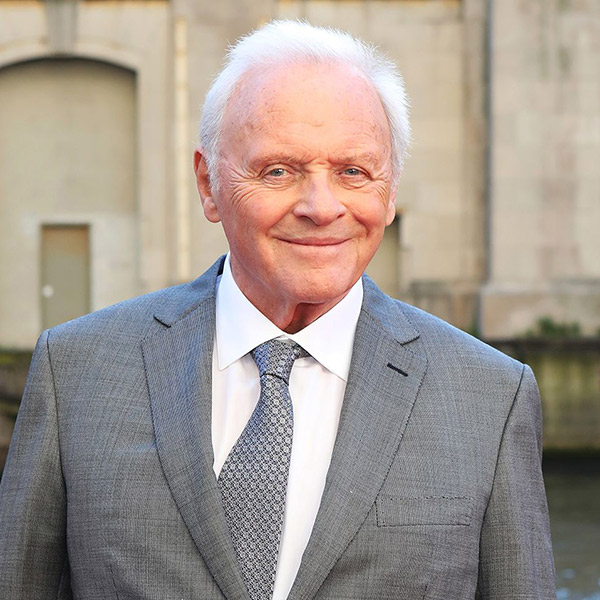
- Field: Acting / Film
- Notable for: The Silence of the Lambs, The Father, The Remains of the Day
- Autism connection: Diagnosed in his 70s, Hopkins attributes his intense focus, emotional depth, and ability to fully embody complex roles to his autistic traits.
- Redefining the autistic narrative: He’s confident, charismatic, and commanding — qualities that defy the outdated “withdrawn autistic” stereotype.
I have always admired Anthony Hopkins—not just for his immense talent, but for the intense dedication and precision he brings to every role. His ability to inhabit a character so fully, with such controlled nuance and emotional depth, has always captivated me. There’s something about his presence on screen that feels both powerful and deeply intentional, as if every gesture and pause has been carefully crafted with purpose. So when I found out that he had been late-diagnosed with autism it came as no surprise.
This kind of intense, singular focus is often described in autism research as monotropism—a cognitive style where attention narrows in on a particular area of interest, allowing for deep exploration and sustained engagement [4]Attention, monotropism and the diagnostic criteria for autism (Murray et al., 2005). Hopkins himself has said, “I think deeply about everything. I’m fascinated by the detail, the structure, the psychology of a character—it’s never superficial for me.” His words reflect the kind of immersive processing many autistics know intimately.
What was fun discovering was that Hopkins is also a visual artist. Later in life, he began painting—bold, expressive works that reveal another layer of his creativity. I would love to own a print of his one day—probably George seen below. Whether through acting, painting, or composing music, Hopkins exemplifies how autistic passion and focus can create breathtaking, meaningful work.
“There’s no meaning in it. I think it’s awful to try to put meaning into stuff and say this is what it means… I don’t analyze. I just go for it. I don’t feel afraid of it. I don’t feel I have to prove anything. I just paint.”
– Anthony Hopkins
Daryl Hannah
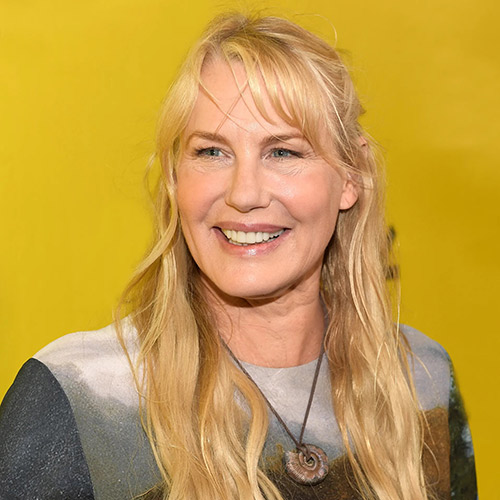
- Field: Acting / Film
- Notable for: Splash, Blade Runner, Kill Bill
- Autism connection: Diagnosed in childhood, Hannah struggled with social situations, eye contact, and sensory sensitivities.
- Redefining the autistic narrative: A glamorous Hollywood icon known for playing seductive and powerful characters — not what many expect from someone on the spectrum.
When I first saw Daryl Hannah in the movie Splash, I noticed something unique about her emotional expression—it stood out in a way I couldn’t quite name at the time. Years later, I learned that she is autistic. As a child, professionals recommended institutionalization, but her parents refused—believing in her potential and choosing to support her instead. By the time she appeared in Kill Bill, I felt that her acting had evolved significantly. Like Hopkins, Hannah does extensive training for her movies.
In interviews, Hannah has spoken candidly about the challenges she faced growing up, particularly her intense shyness and sensory sensitivities. She described being “incredibly socially awkward” and engaging in stimming behaviours like rocking to soothe herself. “I was terrified,” she said, reflecting on public appearances early in her career. “It’s not that I didn’t want to talk to people, but I just couldn’t.” For years, she kept her autism diagnosis private, fearing it would damage her career.
It’s not uncommon for autistic actors—especially women or those assigned female at birth—to be misunderstood or mischaracterized early in their careers, both by the public and the film industry. Many autistics learn to mask or modify their emotional expressions over time to fit neurotypical expectations. What’s often seen as “improvement” is sometimes the result of exhausting internal effort and years of adaptive strategies. In Hannah’s case, her journey is a testament to resilience, adaptation, and talent—not to a “fixing” of autism, but to personal and professional growth.
Her story also highlights the broader systemic issues that can impact autistic individuals: the risk of misdiagnosis, the stigma surrounding neurodivergence, and the pressure to suppress one’s authentic self. Today, as more public figures like Hannah speak openly about their experiences, we gain a deeper appreciation for the diversity and strength within the autistic community.
Bella Ramsey
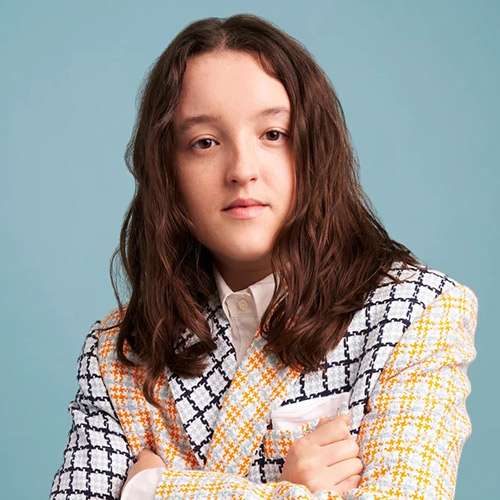
- Field: Acting / Television
- Notable for: The Last of Us, Game of Thrones
- Autism connection: Diagnosed while filming season one of The Last of Us, Ramsey shared in a 2025 British Vogue interview that they had always felt out of place and were highly attuned to subtle social cues.
- Redefining the autistic narrative: Ramsey says that learning how to socialize manually has actually helped their acting — proof that autistic traits can be artistic superpowers.
In a powerful and deeply personal revelation, actor Bella Ramsey shared that they received their autism diagnosis while filming the first season of The Last of Us. The diagnosis, they said, helped them make sense of lifelong experiences that had never quite fit into place—like feeling out of sync at school or struggling with sensory sensitivities.
“The psychiatric assessment cleared up things I had always wondered about,” Ramsey shared. These included not just emotional and social differences, but very physical ones too—such as the overwhelming sensory experience of heavy outerwear and thermals worn during intense filming in freezing weather. For Ramsey, understanding that these weren’t just quirks, but part of a neurodivergent experience, was freeing.
At the 2:22 mark in their interview, Ramsey discusses the overwhelming positive response to their disclosure.
Science, research & technology
Dr. Camilla Pang
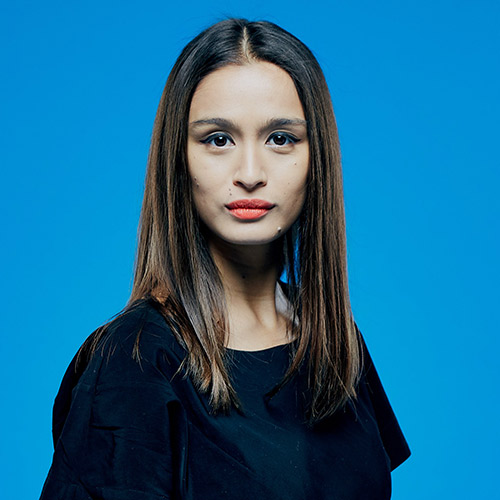
- Field: Computational Biology / Bioinformatics
- Notable for: Explaining Humans, machine learning research in disease understanding.
- Autism connection: Diagnosed at 8. Pang credits her ability to see patterns, systems, and scientific complexity to her autistic perspective.
- Redefining the autistic narrative: She’s stylish, emotionally expressive, and socially attuned — defying the stereotype of the aloof or awkward scientist.
“My autism had the advantage of making me immune to peer pressure.”
In 2020, Camilla Pang made headlines when she won the Royal Society Science Book Prize for her debut, Explaining Humans: What Science Can Teach Us About Life, Love and Relationships. A groundbreaking work blending neuroscience, psychology, and personal insight, the book was praised for its accessible voice and fresh perspective—drawn from Pang’s lived experience as an autistic and ADHD-diagnosed scientist.
Diagnosed with autism at eight and ADHD at 26, Pang recalls sensing she was different as early as age four. “It was like a general dysrhythmia,” she explains—an awareness of moving through the world at a slightly different rhythm than others. Her intense passion for patterns and sound led her to play Elton John songs by ear on the xylophone and piano, wowing those around her with her auditory memory and creative mind.
But her formative years were far from easy. As an outsider in school, she was often isolated. Still, Pang sees a silver lining in her neurology: “My autism had the advantage of making me immune to peer pressure.” At 17, she writes, she finally felt “fully human”—not because she had changed, but because she had accepted herself. “It’s more to do with an acceptance that you have a right to be you, to say what you want and take up space because you are a human.”
Now with a PhD in bioinformatics from University College London, Pang works as a postdoctoral researcher and continues to be a powerful voice in public discussions about neurodiversity. She challenges myths about what autistic and ADHD individuals can achieve, and offers a compelling reminder: neurodivergence isn’t a deficit—it’s a different way of understanding and engaging with the world.
On Jul 8, 2022 she gave a TED Talk on being neurodivergent.
Dr. Devon Price
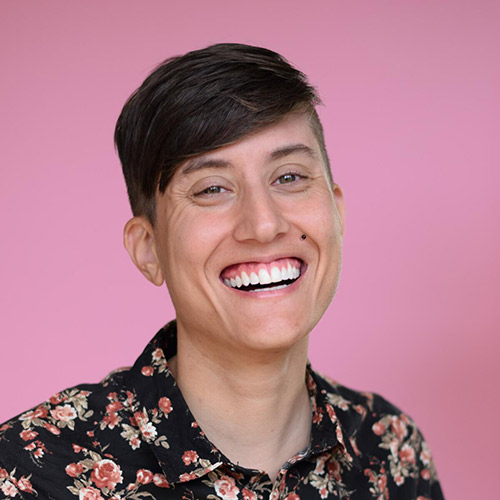
- Field: Social Psychology / Behavioral Science
- Notable for: Unmasking Autism, Laziness Does Not Exist
- Autism connection: Openly autistic, Price explores masking, burnout, and the harm of societal expectations on neurodivergent people.
- Redefining the autistic narrative: Articulate, funny, and socially conscious — far from the rigid or emotionless image many associate with autism.
Dr. Devon Price is a social psychologist, writer, and professor at Loyola University Chicago who has become a leading voice in the neurodiversity movement. As an openly autistic person, Price uses his platform to shed light on the lived experiences of autistic individuals—especially those whose traits have historically gone unseen due to masking, gendered biases, or racial stereotyping.
In his groundbreaking 2022 book, Unmasking Autism: Discovering the New Faces of Neurodiversity, Price explores autistic masking—a strategy many autistic people adopt to “pass” in neurotypical society. He argues that while masking may help individuals avoid bullying or discrimination, it often comes at the cost of mental health and self-identity. Below is an interview on autism and his book.
Dr. Jac den Houting
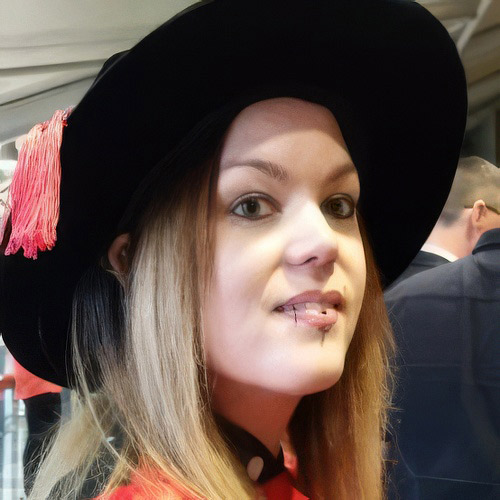
- Field: Developmental Psychology / Autism Research
- Notable For: TEDx Talk Why Everything You Know About Autism Is Wrong
- Autism Connection: An autistic researcher who brings lived experience to their work, transforming how autism is understood and researched.
- Redefining the autistic narrative: Engaging and dynamic, den Houting challenges assumptions that autistic people can’t be powerful public communicators.
Dr. Jac den Houting (they/them) is an autistic psychologist, researcher, and activist whose work is helping redefine what meaningful autism research looks like. Rather than treating autism as something to be studied from the outside, Jac advocates for research that is created with autistic people—work that reflects the real priorities and lived experiences of the community.
After beginning their career in clinical psychology in Brisbane, Jac moved into academia and quickly became a prominent figure in the neurodiversity movement. Their 2019 TEDx talk, “Why everything you know about autism is wrong,” has reached over 1.5 million viewers and continues to resonate deeply within and beyond the autistic community. In it, Jac challenges medicalized, deficit-based models of autism and urges a shift toward understanding autism as a natural and valuable variation of the human mind.
Autism is a vast, and varied. From the arts to the sciences, from the quiet creators to the outspoken advocates, autistic individuals are shaping the world in bold, brilliant, and beautiful ways. The more we challenge outdated stereotypes and uplift authentic autistic voices, the more we make room for a richer understanding of what it means to be autistic.
When I think of autism, I don’t see a deficit—I see depth. I see pattern recognition, creativity, emotional intensity, resilience, and fierce integrity. I see a way of being that has enriched every part of my life.
So the next time you hear the word “autism,” I hope you think of possibility. I hope you think of Anthony Hopkins, Daryl Hannah, Bella Ramsey, and Grimes; of Camilla Pang, Devon Price, and Jac den Houting; of the countless others who are quietly or loudly changing the world by being unapologetically themselves…
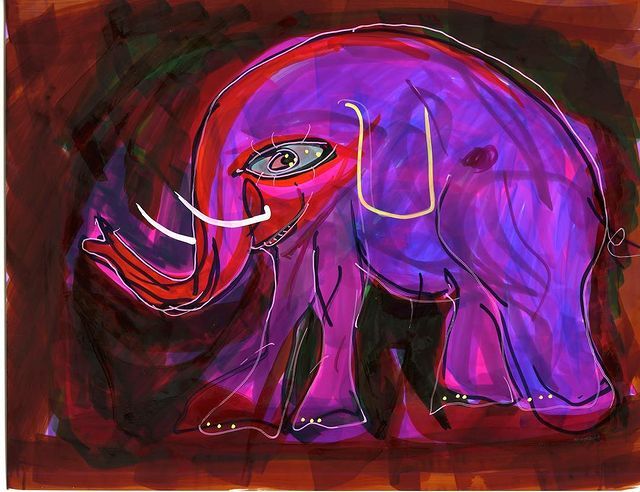
Comments
Let us know what you think!